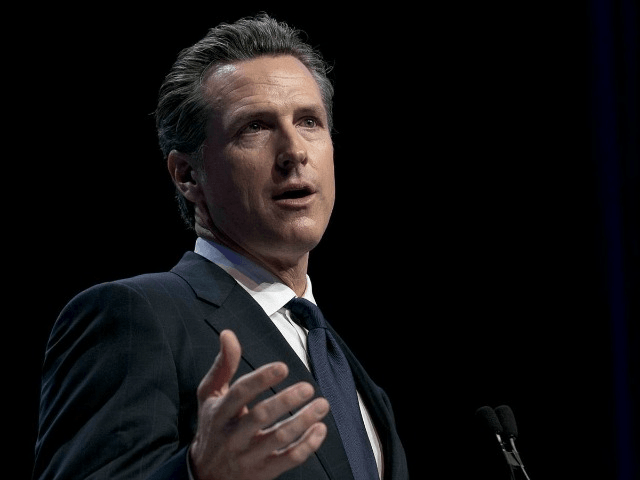California Gov. Gavin Newsom (D) is under fire for neglecting the homelessness crisis festering in his state.
PolitiFact recently rated one of his remarks “Pants on Fire” after he claimed that the “vast majority” of the homeless population in San Francisco comes from Texas:
“The vast majority (of San Francisco’s homeless people) also come in from — and we know this — from Texas. Just (an) interesting fact,” Newsom said during an interview with Axios on HBO in June.
“San Francisco’s own homeless surveys contradict this. They show a large majority reported living in the city before becoming homeless, and just a fraction coming in from out-of-state,” PolitiFact assessed.
It continued:
Newsom’s office pointed to data from San Francisco’s bus ticket program for homeless people. But that defense doesn’t hold up. It shows just a small fraction, less than 7 percent, left for Texas, and doesn’t demonstrate that they originally came to San Francisco from that state.
In the end, we found Newsom made a ridiculous claim.
We rated it Pants on Fire.
Newsom’s problematic remark only added to the mounting tensions in the state.
Sacramento salon owner Elizabeth Novak recently posted a viral video directed at Newsom, detailing how the unaddressed homelessness crisis in the state is affecting her business.
“I’ve had a business in downtown Sacramento for 15 years. I just want to tell you what happens when I get to work: I have to clean up the poop and the pee off of my doorstep,” she said in the viral post.
“I have to politely ask people, who I care for, I care for these people who are homeless, to move their tent,” she continued. “So, I want to know what you’re going to do for us”:
Because of that, she is forced to move her business elsewhere, telling Fox News that she is “never sure what [she is] going to walk into” when she goes to work every day.
“When I come into work, I’m never sure what I am going to walk into. I’ve been broken into; I’ve had my glass broken; I clean up human excrement off of my doorstep every week, cups of urine, things like that,” she explained.
“And, I do have compassion for these people – but, they’re sleeping in front of your door and they’re leaving trash and they’re turning over garbage cans, and I can’t do that anymore,” she continued, explaining that some of the roots of the issue – such as drug abuse – have yet to be properly addressed.
Homelessness has been an ongoing problem, particularly in San Francisco and Los Angeles.
According to a June report, the homeless population jumped 12 percent in the last year alone in Los Angeles County, “nearly 59,000 living on the streets.”
As Breitbart News reported:
The newly released data revealed that nearly three-fourths of the homeless population, which includes 58,936 people, are sleeping in cars, tents, and other make-do shelters.
Released by the Los Angeles Homeless Services Authority to the Board of Supervisors, the data found that the majority of homeless people were residing in the city of Los Angeles, which saw an increase of 16 percent to 36,300.
Additionally, an estimated 16,000 live in cars, according to the Los Angeles Times, spurring the creation of “safe parking” areas, which serve as an alternative to homeless shelters. However, the LA City Council recently reinstated an ordinance, banning people from sleeping in cars parked in residential areas.
“This law … is going to directly contribute to these people being on the street,” Mel Tillekeratne, executive director of nonprofit homelessness group The Shower of Hope said.
Meanwhile, San Francisco’s homelessness population has risen 17 percent in the last two years alone as the result of “the pressure of rising housing costs, and the social devastation of the opioid epidemic,” as Breitbart News reported.
Newsom signed California’s 2019-2020 state budget in June, pledging a “historic” $1 billion investment to address the crisis. According to the release, the investment will:
- Provide homelessness emergency aid to local governments for emergency housing vouchers, rapid rehousing programs and emergency shelter construction
- Increase mental health supports, which includes expanding Whole Person Care services that provide wrap-around health, behavioral health and housing services, and building strategies to address the shortage of mental health professionals in the public mental health system
- Fund rapid rehousing and basic needs initiatives for students in the University of California, California State University and California Community College systems
However, the state has yet to see any tangible improvements on the homelessness front.

COMMENTS
Please let us know if you're having issues with commenting.